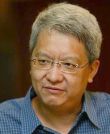 There is a new ministry initiative launching publicly this week called Open Source Mission (OSM). OSM is a non-profit initiative to enable translation of contemporary evangelical materials from English to various languages through the power of mass collaboration. Some of us who frequent this blog have been working on this in various ways over the past few months so we're excited that it's now unveiled and launched.
There is a new ministry initiative launching publicly this week called Open Source Mission (OSM). OSM is a non-profit initiative to enable translation of contemporary evangelical materials from English to various languages through the power of mass collaboration. Some of us who frequent this blog have been working on this in various ways over the past few months so we're excited that it's now unveiled and launched.OSM is founded on the belief that accessibility to biblically sound content is of strategic importance to the vitality of the growing churches worldwide. In particular, we see an opportunity to bring translated Christian materials to the non-English speaking world by taking advantage of technology innovation and an “open source”, participatory model of translation. Our vision is to create a new, revolutionary, framework for translation by combining the following components:
• Global social network of volunteer translators
• Proven “open source” methodology
• Web 2.0 collaboration platform
In essence, what we hope to see are several ongoing translation projects fueled by the passion and skills of volunteer translators, resulting in an online reference portal of translated books and articles in a multitude of languages – all available for free.
The distinctive focus of OSM is simple -
Mass Collaboration - We want to enable translation through the mass collaboration of volunteer translators. We believe the Web 2.0 world has opened unique opportunities for collaboration through a community participatory model. Such models have been proven successful in other arenas. By applying methodologies similar to those used in an open source software projects like Linux or Web 2.0 projects like Wikipedia, we hope to effectively tackle the translation challenge.
Contemporary Gospel Centric Writings - We want to focus on contemporary, evangelical, gospel centric materials. We’re not interested in doing Bible translations – that’s best left to professionals. Nor are we planning to tackle historical writings (i.e. Puritans, Reformers, early Church Fathers) - there are sufficient hurdles in bridging the translation and cultural gap without undertaking the challenge of a historical gap as well. We're initially focused on contemporary translations from our partner organizations.
Leveraging Technology - We want to leverage technology to make these materials accessible. We believe that the trajectory of technology adoption in the developing nations means that the most effective and inexpensive way to get materials to our fellow Christians in these nations is to provide this material on the web, searchable, cross referenceable and free.
OSM, together with partners like Sovereign Grace Ministries, Desiring God, 9 Marks and other like-minded organizations, will work on the Gospel Translation Project. The Gospel Translation Project involves building a "wikipedia type" portal of translated content at www.gospeltranslations.org. (Disclaimer: the portal is currently in beta and content is still being loaded onto the site.)
Initially, our focus will be to work on translating materials from the aforementioned partners who have generously contributed to our translation permissions library.
If you find this intriguing, interesting, or possibly even inspiring, here’s how to get involved:
1. Check out the OSM website , learn more about what we do , offer feedback and please pray for the ministry.
2. If you are bilingual, please consider using your language skills in one of our projects. You can sign up on the OSM website or email our Ministry Coordinator, Andrew Mahr - andrew@opensourcemission.com. By participating in one of our projects, your contribution will impact your fellow Christians for years to come.
3. Please help spread the word. If you're a blogger, please consider blogging about OSM and the Gospel Translation Project. This is a grassroots movement and thrives on individual volunteer initiative. If you should blog on this, please let others know of the need for translation and issue a gracious call for bilingual Christians to consider participating in this.
4. Link to Open Source Mission on your sidebar and let us know. We need help to make this work and we'd love to have you get involved in some way...even if you can't translate.
We have a number of willing translators in Malaysia and Indonesia but we would be glad to get more help. There are translation projects starting up in a number of languages including Bahasa, Chinese, Korean and Spanish. If you can speak any of these languages, please consider lending your help.












